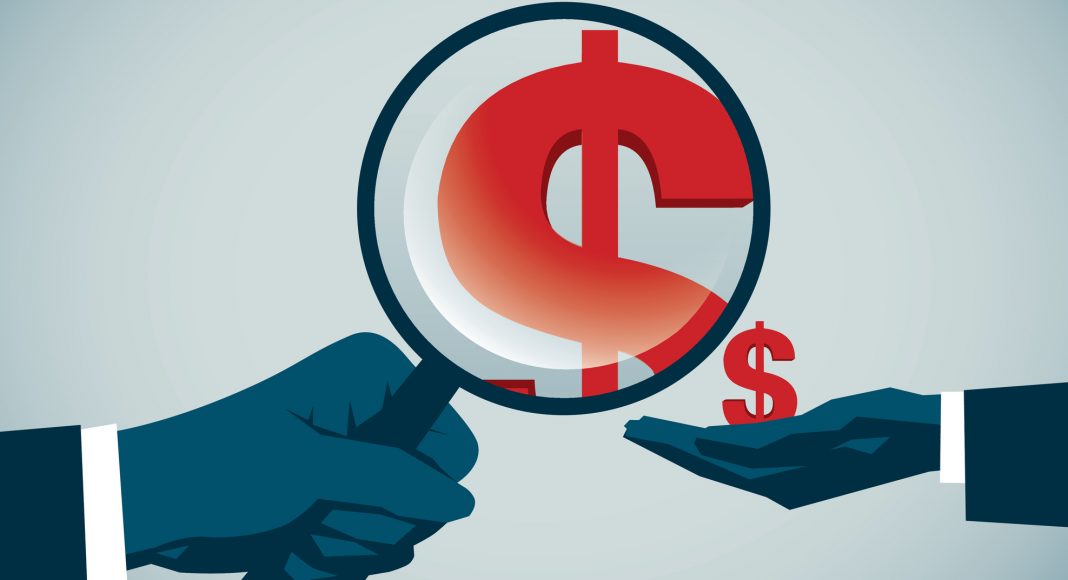We now know that Wirecard was a massive fraud. The company—treated like a rock star by regulators and key players in finance—fabricated customers, invented profits and lied about the whereabouts of about €1.9 billion of cash. Meanwhile, journalists and short sellers who raised questions about the company were accused of collusion and investigated.
Editor’s note: The following is based on a talk Karthik Ramanna gave during the Stigler Center’s webinar, The Wirecard Saga: Germany’s Enron Moment?
Wirecard was a high-flying German DAX 30 company that seemed to defy reason. Despite years of media scrutiny of its questionable business practices—and attendant pressure from short sellers—the company continued to grow and attract blue-chip investors.
Wirecard was a payment processor for e-commerce sites, a sort-of middleman that helped these mostly smallish (porn and gambling) websites collect cash from their customers, who in turn used major credit cards such as Visa. If that sounds like a fairly vanilla financial-intermediary business model, it is. Yet, for some reason, Wirecard was treated as a rock star of sorts both by several key players in global finance, including Softbank, and by Germany’s political-regulatory establishment, including Chancellor Angela Merkel. This was perhaps akin to the awe in which WeWork was held, until markets finally came to the realization that it was an office-building company with ordinary office-building economics.
We now know that Wirecard was a giant fraud. Not only was the business model quite ordinary, the company really wasn’t very good at doing even that. What its top managers seemingly did instead was fabricate customers, invent profits, and expropriate investors’ capital.
So, how do we make sense of this jarringly surreal saga? Here are seven takeaways from what we know so far about Wirecard.
First, based on a report from KPMG, which was brought in as a second set of eyes to review allegations about Wirecard, the scale of the fraud at the company was massive. About half of the revenues and almost all of Wirecard’s profits were made up: the counterparties in these transactions were not real businesses. This raises the question: How did Wirecard’s statutory auditor, EY in this case, not pick this up earlier?
Audit firms often like to say that the audit process is not designed to pick up fraud. Besides, audits are based on random checks, so they cannot pick out every instance of malfeasance, we are told. These arguments are a cop-out; but even if they were somewhat true, any sort of document-trail verification exercise, no matter how basic, should have sniffed out evidence that almost all profits were fake. If it did not, then the audit is even more irrelevant than its harshest critics might have suspected.
Second, it is now known that about €1.9 billion of cash that the company purported to possess does not exist. This cash was, as of early 2020, reportedly being held in two relatively unknown banks in the Philippines under third-party trustee accounts. Previously, the company had claimed that the cash was being held in trustee accounts in Singapore. It now turns out that the third-party representations of this cash amount were faked. Why did such an obviously fishy arrangement for holding cash not raise more red flags with the statutory auditor?
The cash amount of €1.9 billion was a substantial fraction of the total reported revenues of €2 billion in 2018. But it appears that the auditor did not so much as verify the cash balances directly with the underlying banks: it simply relied on the third-party representations. If such conduct is part of a standard audit, then again, the audit process is profoundly broken. After all, faking cash balances is one of the most basic tricks in a corporate fraudster’s playbook.
Third, Wirecard stated—whilst it was still solvent—that the reason it used third-party trustees to do business in many countries was that it was not directly licensed to operate in those jurisdictions. So, Wirecard apparently leased its software services to third parties, who then operated in its stead. Why was a financial-services intermediary, which performed a banking-like role, operating unlicensed in any country? And why again did the auditor not object to this practice? After all, auditors are not simply hired guns: on paper at least, they are expected to be custodians of market rules, and Wirecard’s approach to circumvent licensing clearly violated the spirit of those rules.
Fourth, all these issues together leave us with three conjectures to explain the behavior of EY. One possibility is that EY’s employees on the Wirecard audit were expressly corrupted, perhaps by side payments of some sort. The second possibility is that they were simply incompetent. A third possibility is that they were somehow culturally conditioned, by workplace practices in auditing, to look away from such client malfeasance. Elsewhere, I have written at length about the wanting culture at audit firms, and how it does not really encourage robust challenge of clients.
If either of the first two possibilities pan out to be true, then it is devastating for EY as a firm. If the third pans out, then it makes the whole audit industry look bad. In any case, it’s a disaster for trust in capital markets.
Fifth, many German regulators and politicians behaved appallingly through this years-long episode of fraud. When journalists at the Financial Times raised questions about a potential fraud at Wirecard, the German securities regulator BaFin decided to pursue legal action against the journalists rather than investigate the company. With regulators like that, fraudsters need not even bother with a defense lawyer!
“Many German regulators and politicians behaved appallingly through this years-long episode of fraud.”
Also, even with all the negative press coverage around a potential massive fraud at Wirecard, German chancellor Angela Merkel thought it appropriate in 2019 to pitch for the company whilst in China. This, despite a warning from a German embassy official in Beijing to avoid getting involved with Wirecard. But, it appears, that a former cabinet colleague of Merkel’s was by then a paid lobbyist for Wirecard. Perhaps Merkel hadn’t fully understood the allegations about Wirecard, or the embassy warning didn’t reach her team on time, but it still makes the political system look ugly.
This brings me to my sixth takeaway: Recently, as a pall has been cast on Anglo-American “shareholder capitalism” for being too rapacious, more scholars and public intellectuals have held up Germany’s “stakeholder capitalism” as an alternative to strive toward in the UK and US. Such stakeholder capitalism works by empowering corporations, rather than markets, to make the big resource-allocation decisions in society: the idea being that enlightened corporate leaders will not be as hard-nosed about profits as capital markets are. They will spare jobs, protect the environment, and be good to consumers, we are assured.
Even if that were true, and I don’t suspect it is so, endowing corporations with such responsibilities means that they come to enjoy tremendous indirect power over their regulators and their governments, as is the case in Germany. Such power can result in an implicit capture of the state.
It’s true that Anglo-American capitalism has also created its own version of state capture, but state institutions in Britain and America are far more divided than in societies like Germany. The result is a separation of (the often-captured) powers, an adversarial system of sorts, which keeps competing self-interests somewhat in check.
One such adversarial institution that played a big role in uncovering the Wirecard fraud is the media. But it was largely the UK-based Financial Times that led the charge. Germany’s own media was surprisingly uninterested in the potential fraud at Wirecard, with some articles instead speculating that FT reporters were being bought off by short sellers to write negative stories.
Another adversarial institution involved in unravelling Wirecard was the short sellers, a group often regarded as the pond scum of active traders. Notwithstanding their public reputation, short sellers can be quite useful, and if there is a lesson for Germany’s BaFin in this, it is that the outright banning of short selling when a listed company is suspected of malfeasance does not solve the underlying problem. That’s simply akin to shooting the messenger in hopes that the message will go away.
But let’s not deify short sellers either: their ill-repute in society is not entirely unjustified. A deep-pocketed short seller has the means and motive to slash and burn an otherwise decent business. Short sellers in markets, like opioids in anesthesia, have to be deployed in careful, well-regulated doses.
Finally, my seventh takeaway: If the “breaking news” of another major corporate fraud sounds tiresomely repetitive to be interesting, this time is different. Capitalism today is at a post-War nadir in popularity, especially amongst the young in the Western world. When Enron collapsed nearly twenty years ago, we were in a very different place. Having just come off the productivity high of the first dot-com boom, public faith in capitalism was roaring. As much as we were astounded by the collusion of auditors and others in the Enron fraud, the episode did not really shake the public’s faith in capital markets.
Today, twelve years on from the 2008 financial crisis, many people still see capitalism as an inside job that makes the rich richer. If auditors, regulators, politicians, and other stewards of the system don’t take seriously their responsibilities, they may soon find they have little ground to stand on.







